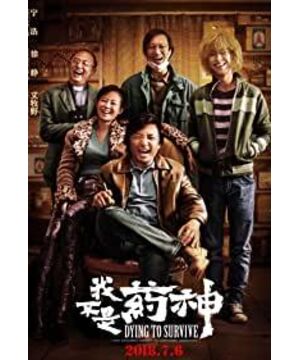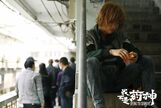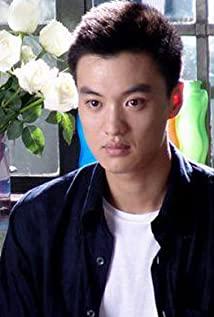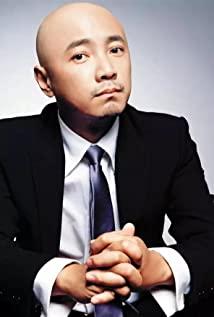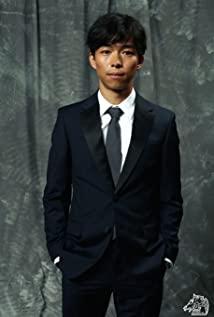(Text / Yang Shiyang)
Now, who is willing to talk about realism in the Chinese film industry? The term itself seems outdated, boring, and disheartening. Why does this happen? It's not that realism as a style has been thrown away in its entirety, but that it has had to undergo all sorts of strange variations in our environment. After being squeezed by external forces and evading self-preservation, Chinese realism has become more and more plasticized. Works that were supposed to face, stare, and feel pain have become obscured, wandering, and covered with icing sugar. People no longer believe that, now, We can still create works of realism in the true sense, and those so-called real stories full of whitewash and embellishment have long been fading. And because of this, "I'm not the God of Medicine" highlights its own value. It doesn't smudge, doesn't powder, doesn't polish. Let realism reproduce the rough dignity.
I don’t know how many people will remember the real event behind the movie. The trial that caused huge controversy involved jurisprudence, human relations, life and death, and some kind of unshakable predicament, but we are too good at forgetting, perhaps, forgetting is the helpless person The easiest and easiest weapon to resist suffering. Therefore, those vast and embarrassing events are always read and burned. We sigh at the mapping of reality by Korean films and admire the promotion of reality by Indian films, but people have not dared to expect Chinese films to respond to the reality we are in. Therefore, the reputation of "I am not a medicine god" is not only because of the film itself, but also about its moral courage.
This story is out of the norm for the presentation of many characters' identities, and it surprises people because of this.
Police, which have been used sparingly in previous films, exist in a general way as a state apparatus, symbolizing abstract justice, but here, Cao Bin, played by Zhou Yiwei, makes his first appearance with the appearance of violating discipline. When he appeared, he beat Cheng Yong, played by Xu Zheng, and disturbed the police station with his brother-in-law's righteousness to fight for his sister's injustice. This taboo appearance pattern established the narrative tone of the story-everyone is emotional and follows the heart, not Rational, bound by rules. This kind of complex image of a simple sense of justice, social ruffian and institutional norms is rarely seen on the big screen in China in recent years.
In addition, it is extremely rare that "I Am Not the God of Medicine" allows a priest to appear on a large scale for a long time. In contemporary stories, Chinese priests and religious systems are absent, and even if they appear, they are destined to be cautious and old-fashioned, but This time, the pastor is personified like a policeman. Pastor Liu is an important member of the drug trafficking syndicate, a believer, a comforter - the patient's own person. After all, he is just a dutiful man wearing a white stiff collar. , he completely disintegrated the stereotypes in people's hearts about religion being unreasonable, and used the teachings in a flexible way, leaving only a core of kindness. Not so important. Such characteristics are common to all people - not just policemen and priests - Liu Sihui, who raised the cost of her daughter's treatment, danced for a living; Cheng Yong, who worked for the well-being of the patients, used to sell ineffective spiritual oils. ; No talk, no ha, the yellow-haired man who has been silently helping everyone looks like a standard bastard; the Lu Yiyi who instigated the beginning of it all looks wretched and cowardly... Everyone is trying their best to hide their kindness and softness, trying their best to Played themselves sophisticated, greedy, ruthless, tough, but they were more innocent than anyone. That kind of presentation is fundamental to the success of this story, because these characters are like each of us, real people.
In addition to this, there is another role, the representative of the Swiss pharmaceutical company, the man is portrayed as the opposite of this group of good people, and he has been painted as a cold calculator in several appearances. To a certain extent, he acts as the villain in this story, the other end of the seesaw of dramatic conflict, and the image of this character is ambiguous. If there is any problem with "I'm Not the God of Medicine", it may be the attitude about this character's image. The drama is emotion-driven, not dilemma-driven. In other words, the driving force for the story to move forward is the simple conscience of the people themselves, and the reasons for the plight of those patients have not been investigated more deeply. Based on this, someone needs to stand on the opposite side of the conscience and act cruel ruthless. However, the agent of the Swiss pharmaceutical company and the force he endorsed should never be hated and despised. This involves another layer of common sense behind the story. Medicine is a commodity, but it is a special commodity. It has the attributes of ordinary commodities but also the attributes of humanitarian goods. When people consume medicines, they must have the demands of moralism. However, the development of drugs for terminal illnesses requires high costs. As the cost of research and development, the capital and time must be sold at a high price during the short patent period to maintain its own operation. Otherwise, no one will be willing to develop it. In this sense, Swiss pharmaceutical companies need not only criticism, but also respect. Because those factories that make generic drugs have drugs that can be copied because there are institutions like Swiss companies that first developed the genuine drugs. They shouldn't be identified as profiteers anyway. In that sense, if the character can present his complexities and struggles, not just snobbery and indifference, it will take things to the next level. Because this person is also the first weight in the predicament.
In fact, there are different types of generic drugs. The WTO once allowed underdeveloped countries such as Bangladesh to obtain exemptions from the patent protection of pharmaceutical products and clinical data in developed countries, and can produce generic drugs for a specified period of time. Some of the generic drugs produced in India are of this type, while others are otherwise. China is not in that patent exemption sequence, so Chinese patients can only buy cheap generic drugs through other channels. And such a large-scale purchase and customs clearance is indeed contrary to the current law. This is the biggest dilemma. Law-abiding can only wait for death, and fighting for life is doomed to break the law. If we say what should be tortured, perhaps it is the insurance mechanism of a country, why it cannot cover such drugs, and what kind of social mechanism can make every citizen, whether healthy or sick, can obtain the corresponding dignity. Of course, in the current environment, we can't expect Chinese films to complete such torture. It is very rare for "I'm not the God of Medicine" to present the problem.
This is a very clever way of selecting materials. There is a conflict between reason and law. It seems sharp but cleverly avoids ideological sensitivity and turns it into a purely emotional story. A patient? You can guarantee that you will not get sick for the rest of your life?” It touches people in such a way that is close to everyone, and then allows people to follow their emotions into reason, and then carry out another relay of torture by themselves, completing a small enlightenment.
In fact, no one in this story is really heinous, and no one should be asked to be compassionate. Everyone is a survivor who is struggling in the predicament, whether it is those suffering patients or the manager of a pharmaceutical factory who is running for the fight against generic drugs. , all of which are true. The characterization of "I'm Not the God of Medicine" is inevitably reminiscent of "Dallas Buyers Club", and the conflict between patients and pharmaceutical companies is reminiscent of "One Hundred and Twenty BPM", we are finally in the domestic film. see our own reality.
Now, how careful should realistic movies be? "Operation Red Sea" wrote that terrorists will avoid those well-known country names, and make up a country that does not exist on earth, write a crime story, and the abbreviation on the license plate cannot be printed with the real city abbreviation. And "I'm not the God of Medicine" generously declares that this is Shanghai, let the Oriental Pearl show its silhouette in the haze, let the characters speak dialect, write Shanghai on the license plate, and directly Chen Pharmaceutical Factory is in India... Yes, reality The subject matter can be fictional stories and characters, but how can the background and region be made up? Even in such details, it returns realism to common sense and dignity.
Cheng Yong, played by Xu Zheng, entered the industry because of money and returned because of love. At the end of the day, this story is about a group of foul people helping a group of outcasts. Empathy and conscience differentiate humans from other animals. "I'm Not the God of Medicine" shows the kindness and dignity of human beings with a rare compassion.
(This article was first published in Tencent's column, and unauthorized reprinting is prohibited)
New book "Lonely Shadow Hunter" released
View more about Dying to Survive reviews


